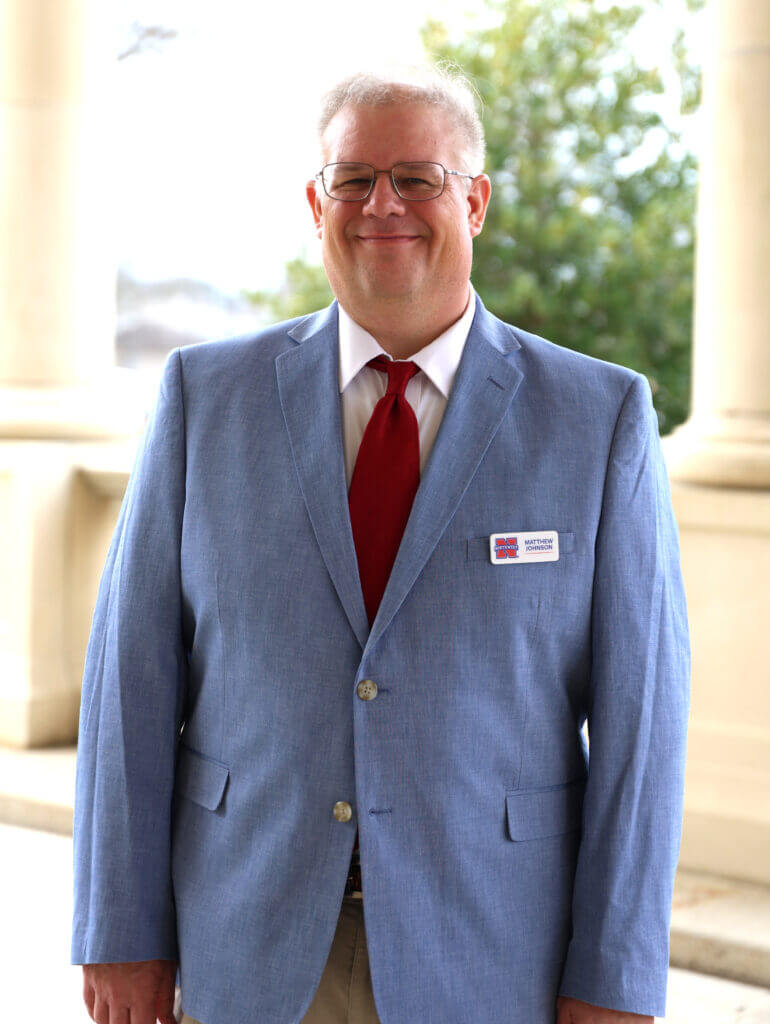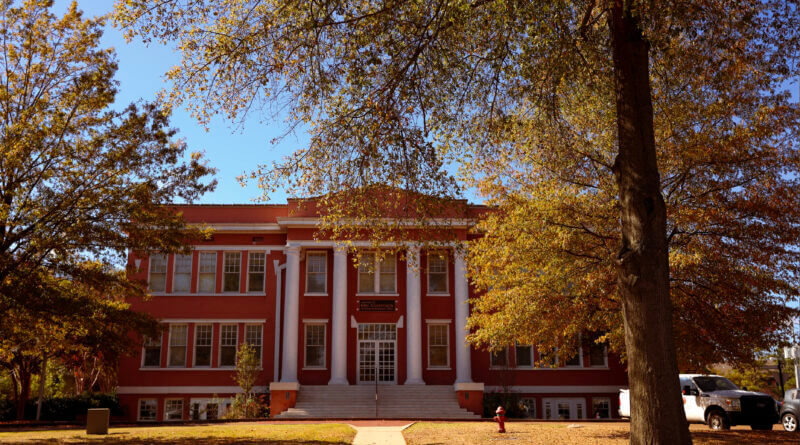Matt Johnson named Humanities Council Teacher of the Year
By Julie Bauer and Sarah Smith
Northwest Mississippi Community College humanities instructor Matt Johnson of Oxford has been selected as a Mississippi Humanities Council (MHC) Teacher of the Year.
Originally from Houston, Texas, Johnson found his way to Mississippi via his alma mater, the University of Mississippi, where in the late ’90s, he got his bachelor’s degree, master’s degree in history, and completed some Ph.D. course work and comprehensive exams, but decided that he didn’t have the time, energy or interest in completing a dissertation, thus is a self-proclaimed, “happy Ph.D. drop out.”

The Mississippi Humanities Council has been recognizing outstanding instructors at Mississippi’s colleges and universities since 1995. Johnson is among a group of recipients who were honored statewide. He was nominated by Kristin Davis, associate vice president of Academic Instruction.
As part of receiving this honor, Johnson is required to make a public presentation in his area of expertise. His presentation will be held at Northwest’s main campus in Senatobia on Friday, March 8, at 10:30 a.m.
Johnson’s presentation is titled, “A New Liberty: Roots, Radicalism, and Repercussions of the American Revolution.” His goal is to trace through the evolution of American ideals about liberty circa 1688-1800.
“We will see how the founding generation once imagined liberty under a monarchy, then under a republic, and finally under a democratic republic,” Johnson said.
Johnson’s studies primarily focus on early American history, but have delved into European history, especially English. Johnson explained that the more he researched the topic, the more he realized we cannot understand American history outside the context of the western world, especially England, which had a huge impact on American society.
While doing this research, he said he has tried to bring together the American and English ideals of liberty, and how they are a radicalization of English thought.
“Essentially, I will trace the evolution of American ideals of liberty from 1688-1800,” Johnson said.






